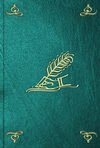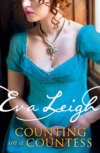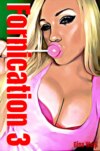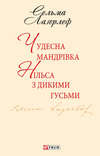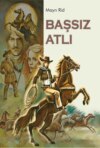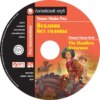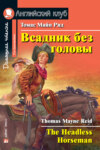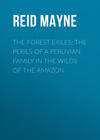Kitabı oku: «The Headless Horseman: A Strange Tale of Texas», sayfa 35
Chapter Seventy.
Go, Zeb, and God Speed You!
The old hunter never did things in a hurry. Even his style of drinking was not an exception; and although there was no time wasted, he quaffed the Monongahela in a formal leisurely manner.
The Creole, impatient to hear what he had to relate, did not wait for him to resume speech.
“Tell me, dear Zeb,” said she, after directing her maid to withdraw, “why have they arrested this Mexican – Miguel Diaz I mean? I think I know something of the man. I have reasons.”
“An’ you ain’t the only purson may hev reezuns for knowin’ him, Miss Lewaze. Yur brother – but never mind ’beout that – leastwise not now. What Zeb Stump do know, or strongly surspect, air, thet this same-mentioned Migooel Dee-ez hev had somethin’ to do wi’ – You know what I’m refarrin’ to?”
“Go on, Mr Stump!”
“Wal, the story air this. Arter we kim from the Alamo Crik, the fellurs that went in sarch o’ them Injuns, foun’ out they wan’t Injuns at all. Ye hev heern that yurself. From the fixins that war diskevered in the holler tree, it air clur that what we seed on the Bluff war a party o’ whites. I hed a surspishun o’t myself – soon as I seed them curds they’d left ahint ’em in the shanty.”
“It was the same, then, who visited the jacalé at night – the same Phalim saw?”
“Ne’er a doubt o’ it. Them same Mexikins.”
“What reason have you to think they were Mexicans?”
“The best o’ all reezuns. I foun’ ’em out to be; traced the hul kit o’ ’em to thur caché.”
The young Creole made no rejoinder. Zeb’s story promised a revelation that might be favourable to her hopes. She stood resignedly waiting for him to continue.
“Ye see, the curds, an also some words, the which the Irish war able to sort o’ pernounce, arter a fashun o’ his own, tolt me they must a been o’ the yeller-belly breed; an sartint ’bout that much, I war able to gie a tol’able guess as to whar they hed kim from. I know’d enuf o’ the Mexikins o’ these parts to think o’ four as answered thar descripshun to a T. As to the Injun duds, thar warn’t nuthin’ in them to bamboozle me. Arter this, I ked a gone straight to the hul four fellurs, an pinted ’em out for sartin. One o’ ’em, for sure sartin. On him I’d made my mark. I war confident o’ havin’ did thet.”
“Your mark! How, Zeb?”
“Ye remimber the shot I fired from the door o’ the shanty?”
“Oh, certainly! I did not see the Indians. I was under the trees at the time. I saw you discharge your rifle at something.”
“Wal, Miss Lewaze; this hyur coon don’t often dischurge thet thur weepun ’ithout drawin’ blood. I know’d I hut the skunk; but it war rayther fur for the carry o’ the piece, an I reckon’d the ball war a bit spent. F’r all that, I know’d it must a stung him. I seed him squirm to the shot, an I says to myself: Ef ther ain’t a hole through his hide somewhar, this coon won’t mind changin’ skins wi’ him. Wal, arter they kim home wi’ the story o’ whites instead o’ red-skins, I hed a tol’able clur idee o’ who the sham Injuns wur, an ked a laid my claws on ’em at any minnit. But I didn’t.”
“And why not, Mr Stump? Surely you haven’t allowed them to get away? They might be the very men who are guilty of my poor brother’s – ”
“That’s jest what this coon thort, an it war for that reezun I let ’em slide. There war another reezun besides. I didn’t much like goin’ fur from the Port, leest somethin’ ugly mout turn up in my absince. You unnerstan’? There war another reezun still for not prospectin’ arter them jest then. I wanted to make shur o’ my game.”
“And you have?”
“Shur as shootin’. I guessed thur wan’t goin’ to be any rain, an thurfor thur war no immeedyit hurry as to what I intended doin’. So I waited till the sogers shed get back, an I ked safely leave him in the guard-house. Soon as they kim in, I tuk the ole maar and rud out to the place whar our fellurs had struck upon the fixing. I eezy foun’ it by thur descripshun. Wal; as they’d only got that greenhorn, Spangler, to guide ’em, I war putty sure the sign hedn’t been more’n helf read; an that I’d get somethin’ out o’ it, beside what they’d brought away.”
“I wan’t disappinted. The durndest fool as ever set fut upon a purayra, mout a follered the back track o’ them make-believe Kimanchees. A storekeeper ked a traced it acrost the purayra, though it appears neyther Mister Spangler nor any o’ the others did. I foun’ it eezy as fallin’ off o’ a log, not ’ithstandin’ thet the sarchers had rud all over it. I tracked every hoss o’ the four counterfits to his own stable.”
“After that?”
“Arter doin’ thet I hed a word wi’ the major; an in helf an hour at the most the four beauties wur safe shot up in the guardhouse – the chief o’ ’em bein’ jugged fust, leest he mout get wind o’ what wur goin’ forrard, an sneak out o’ the way. I wan’t fur astray ’beout Mister Migooel Dee-ez bearin’ my mark. We foun’ the tar o’ a bullet through the fleshy part o’ his dexter wing; an thet explained why he wur so quick at lettin’ go his laryette.”
“It was he, then!” mechanically remarked Louise, as she stood reflecting.
“Very strange!” she continued, still muttering the words to herself. “He it was I saw in the chapparal glade! Yes, it must have been! And the woman – this Mexican – Isidora? Ah! There is some deep mystery in all this – some dark design! Who can unravel it?”
“Tell me, dear Zeb,” she asked, stepping closer to the old hunter, and speaking with a cartain degree of hesitancy. “That woman – the Mexican lady I mean – who – who was out there. Do you know if she has often visited him?”
“Him! Which him, Miss Lewaze?”
“Mr Gerald, I mean.”
“She mout, an she moutn’t – ’ithout my knowin’ eyther one or the tother. I ain’t often thur myself. The place air out o’ my usooal huntin’ ground, an I only go now an then for the sake o’ a change. The crik’s fust rate for both deer an gobbler. If ye ask my opeenyun, I’d say that thet ere gurl heven’t never been thur afore. Leestwise, I hain’t heern o’ it; an eft hed been so, I reckun Irish Pheelum ud a hed somethin’ to say abeout it. Besides, I hev other reezuns for thinkin’ so. I’ve only heern o’ one o’ the shemale sex bein’ on a visit to thet shanty.”
“Who?” quickly interrogated the Creole, the instant after regretting that she had asked the question – the colour coming to her cheeks, as she noticed the significant glance with which Zeb had accompanied his concluding remark.
“No matter,” she continued, without waiting for the answer.
“So, Zeb,” she went on, giving a quick turn to the conversation, “you think that these men have had to do with that which is causing sorrow to all of us, – these Mexicans?”
“To tell ye the truth, Miss Lewaze, I don’t know zackly what to think. It air the most musteeriousest consarn as iver kim to pass on these hyur purayras. Sometimes I hev the idea that the Mexikins must a did it; while at others, I’m in the opposite way o’ thinkin’, an thet some’dy else hev hed a han’ in the black bizness. I won’t say who.”
“Not him, Zeb; not him!”
“Not the mowstanger. No, neer a bit o’ thet. Spite o’ all that’s sayed agin him, I hain’t the leest surspishun o’ his innersense.”
“Oh! how is he to prove it? It is said, that the testimony is all against him! No one to speak a word in his behalf!”
“Wal, it ain’t so sartint as to thet. Keepin’ my eye upon the others, an his prison; I hain’t hed much chance o’ gettin’ abeout. Thur’s a opportunity now; an I mean to make use o’ it. The purayra’s a big book, Miss Peintdexter – a wonderful big book – for them as knows how to read the print o’t. If not much o’ a scholar otherways, Zeb’lon Stump hev larnt to do thet. Thur may be some testymoney that mout help him, scattered over the musquit grass – jest as I’ve heern a Methody preecher say, thur ‘war sarmints in stones, an books in runnin’ brutes.’ Eft air so, thur oughter be somethin’ o’ the kind scared up on the Alamo crik.”
“You think you might discover some traces?”
“Wal; I’m goin’ out to hev a look ’roun’ me – speecially at the place whur I foun’ the young fellur in the claws o’ the spotted painter. I oughter gone afore now, but for the reezun I’ve tolt ye. Thank the Awlmighty! thur’s been no wet – neer y drop; an whatsomiver sign’s been made for a week past, kin be understood as well, as if it war did yisterday – that is by them as knows how to read it. I must start straight away, Miss Lewaze. I jest runned down to tell ye what hed been done at the Fort. Thur’s no time to be throwed away. They let me in this mornin’ to see the young fellur; an I’m sartin his head air gettin’ clurrer. Soon as it air all right, the Reg’lators say, they’ll insist on the trial takin’ place. It may be in less’n three days; an I must git back afore it begins.”
“Go, Zeb, and God speed you on your generous errand! Come back with proofs of his innocence, and ever after I shall feel indebted to you for – for – more than life!”
Chapter Seventy One.
The Sorell Horse
Inspired by this passionate appeal, the hunter hastened towards the stable, where he had stalled his unique specimen of horseflesh.
He found the “critter” sonorously shelling some corn-cobs, which Pluto had placed liberally before her.
Pluto himself was standing by her side.
Contrary to his usual habit, the sable groom was silent: though with an air anything but tranquil. He looked rather triste than excited.
It might be easily explained. The loss of his young master – by Pluto much beloved – the sorrow of his young mistress, equally estimated – perhaps some scornful speeches which he had lately been treated to from the lips of Morinda – and still more likely a kick he had received from the boot-toe of Captain Cassius – for several days assuming sole mastery over the mansion – amply accounted for the unquiet expression observable on his countenance.
Zeb was too much occupied with his own thoughts to notice the sorrowful mien of the domestic. He was even in too great a hurry to let the old mare finish her meal of maize, which she stood greatly in need of.
Grasping her by the snout, he stuck the rusty snaffle between her teeth; pulled her long ears through the cracked leathern headstraps; and, turning her in the stall, was about to lead her out.
It was a reluctant movement on the part of the mare – to be dragged away from such provender as she rarely chanced to get between her jaws.
She did not turn without a struggle; and Zeb was obliged to pull vigorously on the bridle-rein before he could detach her muzzle from the manger.
“Ho! ho! Mass’ Tump!” interposed Pluto. “Why you be go ’way in dat big hurry? De poor ole ma’ she no half got u’m feed. Why you no let her fill her belly wif de corn? Ha! ha! It do her power o’ good.”
“Han’t got time, nigger. Goin’ off on a bit o’ a jurney. Got abeout a hunderd mile to make in less ’an a kupple o’ hours.”
“Ho! ho! Dat ere de fassest kind o’ trabbelin’. You ’m jokin’, Mass’ Tump?”
“No, I ain’t.”
“Gorramity! Wa – dey do make won’full journey on dese hyur prairas. I reck’n dat ere hoss must a trabbled two hunner mile de odder night.”
“What hoss?”
“De ole sorrel dere – in dat furrest ’tand from de doos – Massa Cahoon hoss.”
“What makes ye think he travelled two hunder mile?”
“Kase he turn home all kibbered ober wif de froff. Beside, he wa so done up he scace able walk, when dis chile lead um down to de ribba fo’ gib um drink. Hee ’tagger like new-drop calf. Ho! ho! he wa broke down – he wa!”
“O’ what night air ye palaverin’, Plute?”
“Wha night? Le’ss see! Why, ob coas de night Massa Henry wa missed from de plantashun. Dat same night in de mornin’, ’bout an hour atter de sun git up into de hebbings. I no see de ole sorrel afore den, kase I no out ob my skeeta-bar till after daylight. Den I kum ’cross to de ’table hya, an den I see dat quadrumpid all kibbered ober wif sweet an froff – lookin’ like he’d swimmed through de big ribba, an pantin’ ’s if he jes finish a fo’ mile race on de Metairie course at New Orlean.”
“Who had him out thet night?”
“Doan know, Mass’ Tump. Only dat nobody ’lowed to ride de sorrel ’cept Massa Cahoon hisself. Ho! ho! Ne’er a body ’lowed lay leg ober dat critter.”
“Why, wan’t it himself that tuk the anymal out?”
“Doan know, Massa Tump; doan know de why nor de whafor. Dis chile neider see de Cap’n take um out nor fotch um in.”
“If yur statement air true ’beout his bein’ in sech a sweat, someb’dy must a hed him out, an been ridin’ o’ him.”
“Ha! ha! Someb’dy muss, dat am certing.”
“Looke hyur, Plute! Ye ain’t a bad sort o’ a darkie, though your skin air o’ a sut colour. I reck’n you’re tellin’ the truth; an ye don’t know who rud out the sorrel that night. But who do ye think it war? I’m only axin’ because, as ye know, Mr Peintdexter air a friend o’ mine, an I don’t want his property to be abused – no more what belongs to Capen Calhoun. Some o’ the field niggers, I reck’n, hev stole the anymal out o’ the stable, an hev been ridin’ it all roun’ the country. That’s it, ain’t it?”
“Well, no, Mass’ Tump. Dis chile doan believe dat am it. De fiel’ hands not ’lowed inside hyur. Dey darn’t kum in to de ’table no how. ’Twan’t any nigger upon dis plantashun as tooked out de sorrel dat night.”
“Durn it, then, who ked a tuk him out? Maybe the overseer? War it him d’ye think?”
“’Twan’t him needer.”
“Who then ked it be; unless it war the owner o’ the hoss hisself? If so, thur’s an end o’ it. He hed the right to ride his critter wharever he pleased, an gallop it to hell ef thet war agreeable to him. It ain’t no bizness o’ myen.”
“Ho! ho! Nor myen, needer, Mass’ Tump. Wish I’d thought dat way dis mornin’.”
“Why do ye weesh that? What happened this mornin’ to change yur tune?”
“Ho! what happen dis mornin’? Dar happen to dis nigga a great misfortin’. Ho! – ho! berry great misfortin’.”
“What war it?”
“Golly, Massa Tump, I’se got kicked – dis berry mornin’, jes ’bout an hour arter twelve o’clock in de day.”
“Kicked?”
“Dat I did shoo – all round de ’table.”
“Oh! by the hosses! Which o’ the brutes kicked ye?”
“Ho! – ho! you mistaken! Not any ob de hosses, but de massa ob dem all – ’cept little Spotty da, de which he doan’t own. I wa kicked by Mass’ Cahoon.”
“The hell ye wur! For what reezun? Ye must hev been misbehavin’ yurself, nigger?”
“Dis nigga wan’t mis-b’avin’ ’t all; not as he knows on. I only ask de cap’n what put de ole sorrel in such a dreful condishin dat ere night, an what make ’im be tired down. He say it not my bizness; an den he kick me; an den he larrup me wif de cow-hide; an den he threaten; an den he tell me, if I ebber ’peak bout dat same ting odder time, he gib me hunder lashes ob de wagon whip. He swa; oh! how he swa! Dis chile nebba see Mass Cahoon so mad – nebba, in all ’im life!”
“But whar’s he now? I don’t see him nowhar’ beout the premises; an I reck’n he ain’t rud out, seein’ as the sorrel’s hyur?”
“Golly, yes, Mass Tump; he jess am rode out at dis time. He ob late go berry much away from de house an tay long time.”
“A hossback?”
“Jess so. He go on de steel grey. Ha! – ha! he doan’ ride de sorrel much now. He hain’t mount ’im once since de night de ole hoss wa out – dat night we been ’peakin’ ’bout. Maybe he tink he hab enuf hard ridin’ den, an need long ’pell ob ress.”
“Look’ee hyur, Plute,” said Zeb, after standing silent for a second or two, apparently engaged in some abstruse calculation. “Arter all, I reck’n I’d better let the ole maar hev another yeer or two o’ the corn. She’s got a long spell o’ travellin’ afore her; an she mout break down on the jurney. The more haste air sometimes the wusser speed; an thurfor, I kalkerlate, I’d better gie the critter her time. While she’s munchin’ a mouthful, I ked do the same myself. ’Spose, then, you skoot acrosst to the kitchen, an see ef thur ain’t some chawin’ stuff thur – a bit o’ cold meat an a pone o’ corn bread ’ll do. Yur young mistress wanted me to hev somethin’ to eet; but I war skeert abeout delayin’, an refused. Now, while I’m waitin’ on the maar, I reck’n I ked pick a bone, – jest to pass the time.”
“Sartin’ ye cud, Mass Tump. I go fotch ’im in de hundreth part ob an instant.”
So saying the black-skinned Jehu started off across the patio, leaving Zeb Stump sole “master of the stole.”
The air of indifference with which he had concluded his dialogue with Pluto disappeared, the moment the latter was outside the door.
It had been altogether assumed: as was proved by the earnest attitude that instantly replaced it.
Striding across the paved causeway, that separated the two rows of stalls, he entered that occupied by the sorrel.
The animal shied off, and stood trembling against the wall – perhaps awed by the look of resolution with which the hunter had approached it.
“Stan’ still, ye brute!” chided Zeb. “I don’t mean no harm to you, tho’ by yur looks I reck’n ye’re as vicious as yur master. Stan’ still, I say, an let’s hev a look at yur fut-gear!”
So saying, he stooped forward, and made an attempt to lay hold of one of the fore-legs.
It was unsuccessful. The horse suddenly drew up his hoof; and commenced hammering the flags with it, snorting – as if in fear that some trick was about to be played upon him.
“Durn your ugly karkidge!” cried Zeb, angrily venting the words. “Why don’t ye stan’ still? Who’s goin’ to hurt ye? Come, ole critter!” he continued coaxingly, “I only want to see how youv’e been shod.”
Again he attempted to lift the hoof, but was prevented by the restive behaviour of the horse.
“Wal, this air a difeequilty I didn’t expeck,” muttered he, glancing round to see how it might be overcome. “What’s to be did? It’ll never do to hev the nigger help me – nor yet see what I’m abeout – the which he will ef I don’t get quick through wi’ it. Dog-gone the hoss! How am I to git his feet up?”
For a short while he stood considering, his countenance showing a peevish impatience.
“Cuss the critter!” he again exclaimed. “I feel like knockin’ him over whar he stan’s. Ha! now I hev it, if the nigger will only gie time. I hope the wench will keep him waitin’. Durn ye! I’ll make ye stan’ still, or choke ye dead ef ye don’t. Wi’ this roun’ yur jugewlar, I reck’n ye won’t be so skittish.”
While speaking he had lifted the trail-rope from his own saddle; and, throwing its noose over the head of the sorrel, he shook it down till it encircled the animal’s neck.
Then hauling upon the other end, he drew it taut as a bowstring.
The horse for a time kept starting about the stall, and snorting with rage.
But his snorts were soon changed into a hissing sound, that with difficulty escaped through his nostrils; and his wrath resolved itself into terror. The rope tightly compressing his throat was the cause of the change.
Zeb now approached him without fear; and, after making the slip fast, commenced lifting his feet one after the other – scrutinising each, in great haste, but at the same time with sufficient care. He appeared to take note of the shape, the shoeing, the number and relative position of the nails – in short, everything that might suggest an idiosyncrasy, or assist in a future identification.
On coming to the off hind foot – which he did last of the four – an exclamation escaped him that proclaimed some satisfactory surprise. It was caused by the sight of a broken shoe – nearly a quarter of which was missing from the hoof, the fracture having occurred at the second nail from the canker.
“Ef I’d know’d o’ you,” he muttered in apostrophe to the imperfect shoe, “I mout a’ saved myself the trouble o’ examinin’ the tothers. Thur ain’t much chance o’ mistakin’ the print you’d be likely to leave ahint ye. To make shur, I’ll jest take ye along wi me.”
In conformity with this resolve, he drew out his huge hunting knife – the blade of which, near the hilt, was a quarter of an inch thick – and, inserting it under the piece of iron, he wrenched it from the hoof.
Taking care to have the nails along, he transferred it to the capacious pocket of his coat.
Then nimbly gliding back to the trail-rope, he undid the knot; and restored the interrupted respiration of the sorrel.
Pluto came in the moment after, bringing a plentiful supply of refreshments – including a tumbler of the Monongahela; and to these Zeb instantly applied himself, without saying a word about the interlude that had occurred during the darkey’s absence.
The latter, however, did not fail to perceive that the sorrel was out of sorts: for the animal, on finding itself released, stood shivering in the stall, gazing around in a sort of woe-begone wonder after the rough treatment, to which he had been submitted.
“Gorramity!” exclaimed the black, “what am de matter wif de ole hoss? Ho! ho! he look like he wa afeerd ob you, Mass Tump!”
“Oh, ye-es!” drawled Zeb, with seeming carelessness. “I reck’n he air a bit afeerd. He war makin’ to get at my ole maar, so I gied him a larrup or two wi’ the eend o’ my trail rope. Thet’s what has rousted him.”
Pluto was perfectly satisfied with the explanation, and the subject was permitted to drop.
“Look hyur, Plute!” said Zeb, starting another. “Who does the shoein’ o’ yur cattle? Thars some o’ the hands air a smith, I reck’n?”
“Ho! ho! Dat dere am. Yella Jake he do shoein’. Fo what you ask, Mass Tump?”
“Wal; I war thinkin’ o’ havin’ a kupple o’ shoes put on the hind feet o’ the maar. I reck’n Jake ud do it for me.”
“Ho! ho! he do it wif a thousan’ welkim – dat he will, I’se shoo.”
“Questyun is, kin I spare the time to wait. How long do it take him to put on a kupple?”
“Lor, Mass Tamp, berry short while. Jake fust-rate han’ lit de bizness. Ebberybody say so.”
“He moutn’t have the mateerils riddy? It depends on whether he’s been shoein’ lately. How long’s it since he shod any o’ yourn?”
“More’n a week I blieb, Mass’ Zeb. Ho – ho! Do last war Missa Looey hoss – de beautiful ’potty dar. But dat won’t make no differens. I know he hab de fixins all ready. I knows it, kase he go for shoe de sorrel. De ole hoss hab one ob de hind shoe broke. He hab it so de lass ten day; an Mass Cahoon, he gib orders for it be remove. Ho – ho! dis berry mornin’ I hear um tell Jake.”
“Arter all,” rejoined Zeb, as if suddenly changing his mind, “I moutn’t hev the time to spare. I reck’n I’ll let the ole critter do ’ithout till I kum back. The tramp I’m goin’ on – most part o’ it – lies over grass purayra; an won’t hurt her.”
“No, I hevn’t time,” he added, after stepping outside and glancing up towards the sky. “I must be off from hyur in the shakin’ o’ a goat’s tail. Now, ole gal! you’ve got to stop yur munchin’ an take this bit o’ iron atwixt yur teeth. Open yur corn trap for it. That’s the putty pet!”
And so continuing to talk – now to Pluto, now to the mare – he once more adjusted the headstall; led the animal out; and, clambering into the saddle, rode thoughtfully away.





